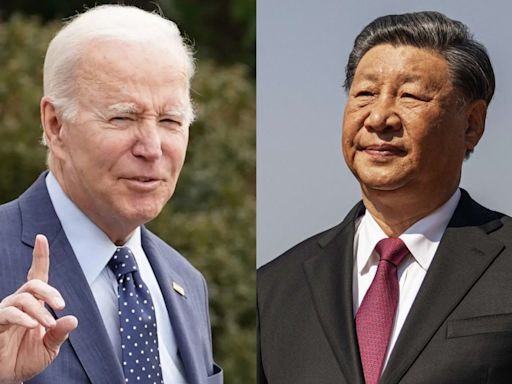The US seems to think its trade restrictions are the golden ticket to solving all its problems. But let’s face it, that’s about as likely as finding a unicorn in your backyard. By slapping unilateral semiconductor controls on China without even consulting with its allies, the US might just be setting itself up for an economic rollercoaster ride.
And as if that’s not enough, they conveniently forgot to patch up the loopholes in their own system. You can bet your last dollar that American suppliers, driven by the sweet scent of profit, will figure out a way to sneak that critical chip-making tech to China faster than you can say.
This whole saga reeks of an ego trip gone wrong. After their not-so-glorious adventures in Afghanistan and Ukraine, it’s like the US is trying to flex its muscles, which will not take it anywhere.
While the US is busy shooting itself in the foot, other countries are seizing the opportunity to level up their AI game. Take India, for example, where PM Narendra Modi is on a mission to digitize the country to the top of the advanced tech ladder.
The US’s export control fiasco is just another episode in the saga of how not to run a country.
The U.S.’s semiconductor export controls strategy is like trying to juggle knives blindfolded—it’s a risky game with a high chance of getting cut. Sure, controlling chip exports might stop some advanced tech from falling into the wrong hands, but it’s also like shooting yourself in the foot.
Unilateral actions, such as the 2022 controls on semiconductor manufacturing equipment, risk unintended consequences and potential backlash. Failure to engage allies in coordinated efforts undermines both cohesion and effectiveness, particularly as many European nations are intertwined in projects like the Belt and Road Initiative’s European Corridor. This isolationist approach will backfire, leading to unnecessary suffering for the U.S. and impeding its ability to influence global partners.
Attempts to swiftly impact the Chinese economy have proven less effective than anticipated. Some policymakers advocate for stricter controls to counter China’s semiconductor ambitions, but the full spectrum of consequences must be carefully weighed. Washington should prioritize long-term success over short-sighted measures that may inadvertently empower China further, potentially escalating tensions in Asia.
The need to defend critical and emerging technologies for economic security is paramount to defend its image diplomatically, especially given recent setbacks in Afghanistan and ongoing challenges in Ukraine.
Restricting exports risks revenue cuts and poses challenges for U.S. firms, ultimately driving Chinese companies to seek alternative suppliers and damaging the domestic economy. Unilateral actions also risk alienating multinational suppliers from the U.S., further eroding its global influence and economic competitiveness.
Tightening regulations without considering the broader implications could result in job losses and hinder innovation within the U.S., exacerbating long-term economic challenges. Moreover, broadening controls burdens enforcement agencies and may prompt strategic shifts in global supply chains, leading to unforeseen consequences.
The case of South Korea underscores the complexity of international relations, particularly with China. Despite being a U.S. ally, South Korea’s economic dependence on China has tempered its willingness to confront Chinese interests directly. The imposition of severe sanctions by Beijing in response to South Korea’s acquisition of THAAD defense technology in 2016 serves as a cautionary tale of the risks involved in challenging China’s growing influence.
In conclusion, it’s crucial for U.S. policymakers to adopt a thoughtful and nuanced approach to semiconductor export controls, as dumb policies will only end up hurting the US economy and strengthening China, which is not good as its aggression may increase in Asia, supported by a strong economy, and weak US.








